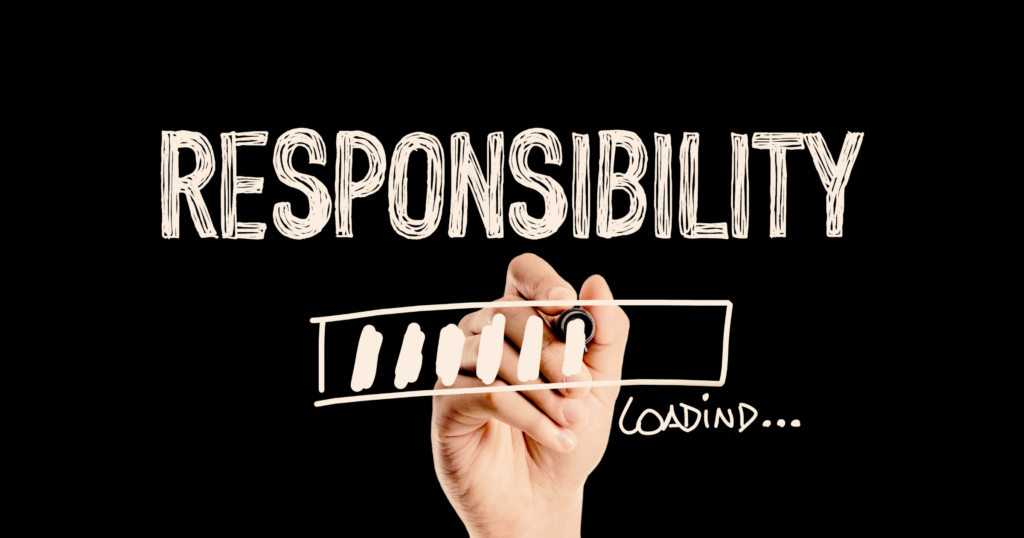When faced with the devastating discovery of a partner’s affair, it’s natural to ask ourselves, “Am I to blame for their cheating?” However, it’s important to remember that infidelity is a complex issue with many factors at play.
In this guide, we will explore the dynamics of the blame game and how to understand the psychology behind it. We’ll delve into the importance of taking responsibility in relationships and explore the effects of gaslighting, a tactic often used by cheaters to shift blame.
But don’t worry, we won’t leave you hanging. We’ll also provide you with valuable insights on how to respond to blame in a healthy way, rebuild trust in yourself after infidelity, and communicate effectively with your partner in the challenging aftermath of an affair.
Key Takeaways:
- Infidelity is a complex issue, and blaming yourself solely for your partner’s cheating is not productive.
- The blame game involves shifting responsibility and can be a sign of an errant spouse feeling cornered.
- Both partners need to take responsibility for their actions and work towards healing – first and foremost as individuals and then, if applicable, as a couple.
- Gaslighting is a manipulative tactic used by cheaters to make their partners doubt their own reality. Learn how to spot it!
- Responding to blame in a healthy way involves maintaining mental clarity to assume responsibility and avoid accepting false blame.
Understanding the Dynamics of the Blame Game
When faced with the fallout of infidelity, it’s not uncommon for the cheater to engage in the blame game. This manipulative tactic involves shifting responsibility onto the other partner and deflecting guilt. Understanding the psychology behind the blame game is essential for navigating its complexities and finding a way forward.
Signs of a cheating partner can be elusive, but certain behaviors may serve as red flags. Increased secrecy about their whereabouts, unexplained absences, and sudden changes in behavior or appearance could be indicators of infidelity. It’s crucial to pay attention to these signs and trust your intuition.
Blame-shifting is a key component of the blame game. The wayward spouse may attempt to minimize their own actions by pointing fingers and assigning fault to the other partner. This tactic not only deflects responsibility but also undermines the betrayed partner’s sense of self-worth and contributes to feelings of confusion and self-doubt.
“Blaming others is an instinctive response to protect the ego from shame and guilt. By shifting blame onto their partner, the wayward spouse attempts to alleviate their own guilt and maintain a sense of control.”
Dr. Jane Hart
The Psychology of the Blame Game
Blame-shifting is rooted in a psychological defense mechanism known as projection (you might want to know more about it in this other article about The Essene 7 mirror theory). The unfaithful partner projects their feelings of guilt, shame, and inadequacy onto their partner, disowning their actions and preserving their self-image. This allows them to distance themselves from the consequences of their behavior and avoid personal accountability.
Furthermore, the blame game serves as a means of asserting power and control. By redirecting blame, the wayward spouse seeks to regain a sense of authority and manipulate the narrative to their advantage. This can further entrench a power dynamic that undermines the betrayed partner’s autonomy and perpetuates the cycle of emotional abuse.
Recognizing and Responding to the Blame Game

Recognizing the signs of blame-shifting is crucial for protecting your emotional well-being and finding clarity amidst the chaos. Awareness empowers you to differentiate between genuine remorse and manipulative tactics. It allows you to question the narrative and take steps toward reclaiming your own narrative.
When faced with the blame game, it’s essential to refrain from internalizing false blame. Remember that you are not responsible for your partner’s actions or choices. Prioritize self-care, surround yourself with a support system, and seek professional help if needed. Taking these steps can help you maintain your mental and emotional resilience in the face of blame-shifting.
For a more detailed understanding of the blame game dynamics, refer to the following table:
| Signs of Blame-Shifting | Psychological Impact |
|---|---|
|
|
Taking Responsibility in Relationships
In the aftermath of infidelity, it’s natural for both partners to experience a wide range of emotions. The pain and betrayal can often lead to finger-pointing, blame, and the desire to avoid personal responsibility. However, taking ownership of our actions is a crucial step toward healing and rebuilding trust in a relationship.
When we choose to take responsibility, we acknowledge our role in the situation and accept that our actions have consequences. This allows us to move away from a mindset of victimhood and empowers us to actively participate in the healing process.
Why Taking Responsibility Matters
Taking responsibility in relationships is not about placing blame solely on ourselves or accepting unwarranted guilt. It is about recognizing the impact our choices and behaviors had on the relationship and acknowledging the pain they may have caused our partner.
By taking responsibility, we demonstrate empathy and compassion towards our loved one’s experience. We show them that we understand the hurt we have caused and that we are committed to making amends. This willingness to take ownership can help lay the foundation for rebuilding trust and ultimately strengthening the relationship.
Steps Toward Accountability
Here are some steps we can take to foster accountability in our relationships:
- Self-reflection: Take an honest look at your actions and motivations, recognizing any patterns or behaviors that may have contributed to the infidelity. This self-awareness allows us to address underlying issues and work towards personal growth.
- Apologize sincerely: Offer a genuine apology to our partner, taking responsibility for our actions and expressing remorse for the pain caused. This apology should not be a means to justify or minimize our behavior, but rather an opportunity to show our commitment to change.
- Seek therapy: Individual and couples therapy can provide a supportive environment for navigating the aftermath of infidelity and exploring the underlying issues that contributed to the betrayal. Therapy offers guidance and tools to help us develop healthier communication and coping strategies.
- Practice open communication: Maintain open lines of communication with our partner, sharing our thoughts, feelings, and concerns openly and honestly. This transparency fosters trust and allows for ongoing dialogue, nurturing the healing process.
Remember, taking responsibility is an ongoing journey. It requires patience, dedication, and genuine effort to change harmful patterns and rebuild a solid foundation of trust. By embracing accountability, we lay the groundwork for a healthier, more resilient relationship.
The Effects of Gaslighting
In the aftermath of infidelity, emotional abuse in the form of gaslighting can have devastating effects on the victim’s mental and emotional well-being. Gaslighting is a manipulative tactic used by those who cheat to distort the truth, make their partners question their own reality, and ultimately maintain control over the relationship.
Gaslighting can cause significant psychological damage, leaving the victim feeling confused, powerless, and doubting their own perception of events. The constant manipulation and invalidation of their thoughts and emotions can lead to a decline in self-esteem and confidence. Over time, the victim may begin to question their own sanity and lose trust in their own judgment. Gaslighting not only undermines the victim’s sense of self but also erodes the foundation of the relationship, making it difficult to rebuild trust and establish open communication.
| The Effects of Gaslighting | Impact |
|---|---|
| 1. Emotional Distress | The victim experiences heightened anxiety, depression, and a constant state of emotional distress. |
| 2. Isolation | The gaslighter isolates the victim from their support network, making them more dependent on the abuser. |
| 3. Self-Doubt | The victim begins to doubt their own perception of reality, leading to a loss of self-trust. |
| 4. Manipulation | The gaslighter exerts control over the victim by manipulating their thoughts, feelings, and actions. |
| 5. Dependence | The victim becomes increasingly dependent on the gaslighter for validation and affirmation. |
It is crucial for individuals who have experienced gaslighting to recognize the signs, understand its impact, and take proactive steps to cope with and overcome this form of emotional abuse.
Recognizing Gaslighting
Gaslighting can manifest in various ways, making it essential to be aware of the warning signs. Recognizing gaslighting is the first step towards breaking free from its grip and reclaiming your sense of self. Here are some common signs of gaslighting:
- Consistently being blamed for the cheating.
- Having your experiences and emotions invalidated or dismissed.
- Constantly second-guessing yourself and your perceptions.
- Feeling confused and doubting your own memory of events.
- Experiencing a loss of self-confidence and self-esteem.
Coping with Gaslighting
Dealing with gaslighting requires strength and resilience. Here are some strategies to cope with gaslighting:
- Seek Support: Reach out to trusted friends, family, or professionals who can provide emotional support and guidance.
- Educate Yourself: Learn about gaslighting and emotional abuse to better understand and recognize the tactics used.
- Practice Self-Care: Prioritize self-care activities that promote physical and emotional well-being.
- Set Boundaries: Establish clear boundaries with the gaslighter to protect yourself from further manipulation and abuse.
- Trust Your Intuition: Believe in your instincts and trust your own judgment, even when the gaslighter tries to convince you otherwise.
By implementing these strategies, you can begin to regain your sense of self-worth and break free from the cycle of gaslighting.
Responding to Blame in a Healthy Way

When we find ourselves facing blame from a wayward spouse, it’s crucial to respond in a healthy and constructive manner. Instead of getting defensive or accepting false blame, we can take control of the situation by employing effective communication and setting clear boundaries.
1. Practice Active Listening
When our partner blames us for their actions, it’s natural to feel hurt and defensive. However, practicing active listening can help us create a safe space for open dialogue. By truly hearing their concerns and validating their emotions, we can foster a more productive conversation.
2. Validate Your Feelings
While it’s important to listen to your partner, it’s equally important to acknowledge your own feelings and experiences. Validating our emotions allows us to assert our perspective and ensures that our voice is heard in the conversation.
3. Set Clear Boundaries
Setting boundaries is crucial in maintaining our emotional well-being. It’s essential to communicate our limits and expectations, making it clear what is acceptable and what is not. By doing so, we establish a healthy foundation for ourselves and our relationships.
4. Seek Help
In some cases, navigating blame in a healthy way may require the guidance of an experienced therapist or to educate yourself. Professional help can provide us with the necessary tools and strategies to communicate effectively, set boundaries, and rebuild trust in our relationships.
| Action | Effectiveness | Benefits |
|---|---|---|
| Active Listening | ✓✓✓ | Creates a safe space for open dialogue |
| Validating Our Feelings | ✓✓✓ | Asserts our perspective |
| Setting Boundaries | ✓✓✓ | Maintains our emotional well-being |
| Seeking Help | ✓✓✓ | Provides guidance and support |
By responding to blame in a healthy way, we empower ourselves to navigate difficult conversations, rebuild trust, and foster healthy communication in our relationships. Taking control of our responses and setting healthy boundaries is not only essential for our own well-being, but it also contributes to the overall health of our relationships.
Rebuilding Trust After Infidelity
“Trust takes years to build, seconds to break, and forever to repair.”
– Unknown
In the aftermath of infidelity, rebuilding trust is a crucial step if you wish to repair a relationship and move forward together. But rebuilding trust requires time, dedication, patience, and open communication from both partners (and if your partner is not willing to endure that difficult phase from a place of willingness and patience, that’s a huge red flag (you might want to read more about it here). By following these steps, we can begin the journey towards healing:
- Acceptance and acknowledgment: Both partners must acknowledge the infidelity and the pain it has caused. It is essential to have honest conversations about the situation, taking responsibility for our actions and their impact on the relationship.
- Setting boundaries: Establishing clear boundaries is necessary to rebuild trust. Discussing expectations, addressing specific concerns, and mutually agreeing upon boundaries can provide a sense of security and rebuild a foundation of trust.
- Transparency and openness: Regaining trust means being transparent and open about our actions and feelings. This includes sharing our whereabouts, being accountable for our actions, and being receptive to any questions or concerns that arise.
- Consistency and reliability: Demonstrating consistency in words and actions is crucial in rebuilding trust. By following through on promises, being dependable, and showing commitment to the relationship, we can gradually rebuild trust.
- Empathy and understanding: Rebuilding trust after infidelity requires empathy and understanding from both partners. Listening to each other’s perspectives, validating emotions, and supporting one another in the healing process can foster a greater sense of trust.
Rebuilding trust is a challenging but worthwhile process. By taking these steps and committing to the journey, we can repair the damage caused by infidelity and work towards creating a stronger, more resilient relationship.
| Steps to Rebuild Trust After Infidelity |
|---|
| 1. Acceptance and acknowledgment |
| 2. Setting boundaries |
| 3. Transparency and openness |
| 4. Consistency and reliability |
| 5. Empathy and understanding |
The Role of Accountability in Healing
Taking accountability for our actions is an essential step in the healing process after infidelity. When we recognize and accept responsibility for our choices, we create a foundation for growth, forgiveness, and rebuilding a stronger relationship. Accountability allows us to address the damage caused by our actions and take meaningful steps toward healing.
Through accountability, we acknowledge the pain we have inflicted on our partner and take an active role in repairing the trust that has been broken. By taking responsibility for our actions, we demonstrate our commitment to change and show our partner that we are dedicated to rebuilding the relationship.
Accountability involves more than just admitting our mistakes; it also encompasses sincere actions that reflect our remorse and dedication to growth. It requires us to be open and honest about our intentions and to actively work on addressing the underlying issues that contributed to the infidelity.
Being accountable means acknowledging the harm we have caused, taking ownership of our behavior, and making a genuine effort to make amends.
Rebuilding Trust Through Accountability
When we take responsibility for our actions, we create space for trust to be rebuilt. By demonstrating our commitment to change, we show our partner that we are invested in their healing and the restoration of our relationship.
Accountability involves:
- Accepting responsibility for the pain caused by our actions
- Being transparent and honest about our thoughts and feelings
- Showing consistent and reliable behavior
- Seeking therapy or counseling to address underlying issues
- Being patient and understanding as our partner heals
Through these actions, we can create an environment of safety and security, where our partner feels heard and valued. We give them the opportunity to express their emotions and concerns, knowing that we are actively working towards change and growth.
The Benefits of Accountability
Embracing accountability brings several benefits to both individuals in the relationship:
| Benefits of Accountability | Explanation |
|---|---|
| Rebuilding Trust | Accountability fosters trust by showing commitment to change and growth. |
| Personal Growth | Accountability allows for reflection and self-improvement, leading to personal growth. |
| Improved Communication | Embracing accountability encourages open and honest communication. |
| Healing and Forgiveness | Accountability paves the way for healing and forgiveness within the relationship. |
| Stronger Relationship | By taking responsibility, we build a foundation for a stronger and more resilient relationship. |
By embracing accountability, we can create a path toward healing and rebuilding trust in the aftermath of infidelity. It is a powerful tool that allows us to take control of our actions, learn from our mistakes, and actively work towards creating a better future, by ourselves or together.
If you don’t know whether to stay with your partner or to move on, know that reaction is not only normal but also healthy. It means that you are aware of the devastating consequences of betrayal and are weighing the options. Don’t allow anyone to rush you into decisions or conclusions.
To help you ponder and make an informed decision, I want to invite you to empower yourself with knowledge on what are the biggest red flags to be aware of while you are still figuring it all out in this article: Discovering Infidelity: Should I Stay or Should I Go?
You’ve got this!
FAQ
Am I to blame for my partner cheating?
No, infidelity is the result of individual choices and actions. It is not the fault of the faithful partner.
What are the signs of a cheating partner?
Signs may include sudden changes in behavior, increased secrecy, decreased intimacy, and unexplained absences.
Why do cheating partners play the blame game?
Cheating partners may resort to blame-shifting as a defense mechanism to avoid taking responsibility for their actions.
How can I cope with infidelity in my relationship?
Coping with infidelity involves seeking support, setting boundaries, and focusing on self-care and personal growth.
What is gaslighting and how does it affect relationships?
Gaslighting is a form of emotional abuse where the cheater manipulates their partner’s perception of reality. It can erode trust and self-esteem.
How should I respond to blame from my wayward spouse?
Responding in a healthy way involves staying calm, communicating assertively, and refusing to accept false blame.
What steps can I take to rebuild trust after infidelity?
Rebuilding trust requires open communication, transparency, consistency, and a willingness to work on the relationship.
How does personal accountability contribute to healing after infidelity?
Taking responsibility for one’s actions allows for introspection, growth, and rebuilding a relationship based on trust and mutual respect.
How can I effectively communicate with my partner after an affair?
Effective communication involves active listening, expressing emotions, being honest, and seeking professional help if needed.
Why is setting boundaries and creating a safe environment important?
Setting boundaries promotes emotional safety, helps rebuild trust, and establishes expectations for behavior within the relationship.
Is forgiveness possible after infidelity?
Forgiveness is a personal journey that varies for each individual. It may be achievable with time, therapy, and a commitment to working through the pain.
How can we rebuild our relationship after infidelity?
Rebuilding a relationship requires commitment, communication, accountability, and a willingness to grow together and heal from the betrayal.




